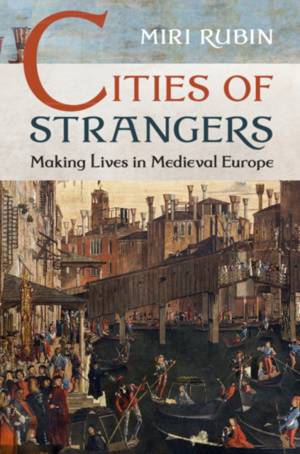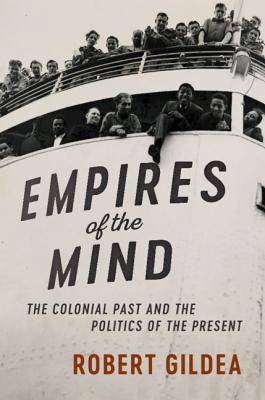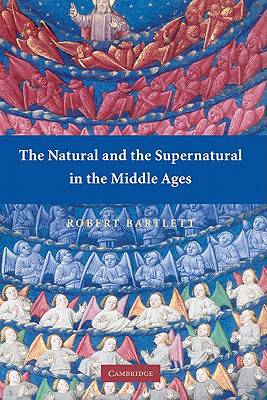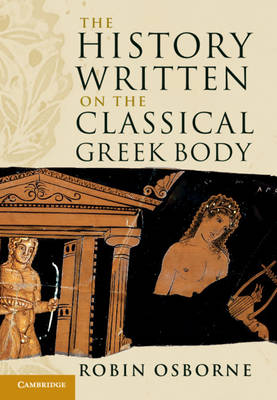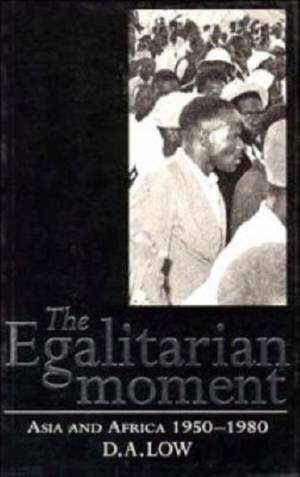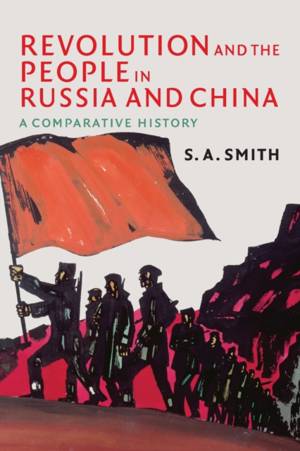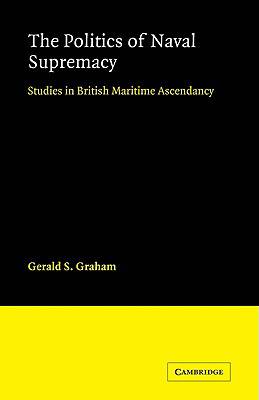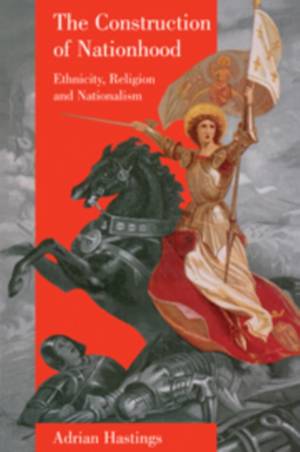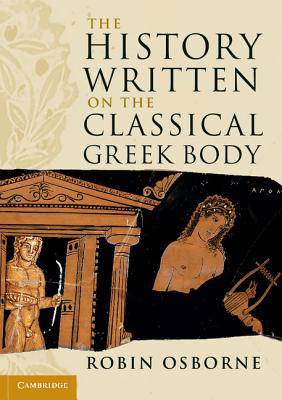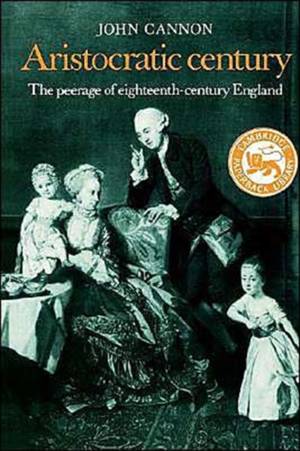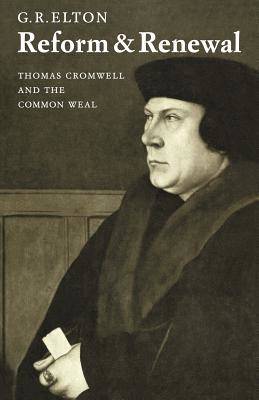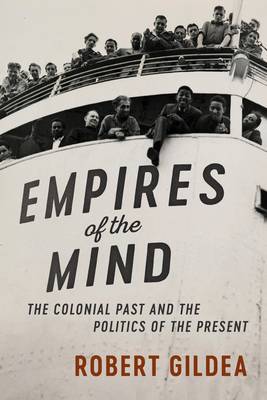
- Retrait gratuit dans votre magasin Club
- 7.000.000 titres dans notre catalogue
- Payer en toute sécurité
- Toujours un magasin près de chez vous
- Retrait gratuit dans votre magasin Club
- 7.000.0000 titres dans notre catalogue
- Payer en toute sécurité
- Toujours un magasin près de chez vous
Résultats pour "Wiles Lectures"
-
Revolution and the People in Russia and China
S A Smith
- Livre relié | Anglais | Wiles Lectures
- A unique comparative account of the roots of Communist revolution in Russia and China. Steve Smith examines the changing social identities of peasants... Savoir plus
136,95 €Livraison 2 à 3 semaines136,95 €Livraison 2 à 3 semaines -
The Social Interpretation of the French Revolution
Alfred Cobban
- Livre relié | Anglais | Wiles Lectures
- Alfred Cobban's Social Interpretation of the French Revolution is one of the acknowledged classics of postwar historiography. Cobban saw the French Re... Savoir plus
136,95 €Livraison 2 à 3 semaines136,95 €Livraison 2 à 3 semaines -
Cities of Strangers
Miri Rubin
- Livre broché | Anglais | Wiles Lectures
- Cities of Strangers illuminates life in European towns and cities as it was for the settled, and for the 'strangers' or newcomers who joined them betw... Savoir plus
38,95 €Livraison 2 à 3 semaines38,95 €Livraison 2 à 3 semaines -
Religion, Politics and Preferment in France Since 1890
Maurice Larkin
- Livre broché | Anglais | Wiles Lectures
- This book is the first to investigate the problems that committed Catholics allegedly faced if they sought careers in state employment under the Third... Savoir plus
60,95 €Livraison 2 à 3 semaines60,95 €Livraison 2 à 3 semaines -
Empires of the Mind
Robert Gildea
- Livre relié | Anglais | Wiles Lectures
- 'The empires of the future would be the empires of the mind' declared Churchill in 1943, envisaging universal empires living in peaceful harmony. Robe... Savoir plus
39,95 €Livraison 1 à 2 semaines39,95 €Livraison 1 à 2 semaines -
Four Studies of War and Peace in This Century
W K Hancock
- Livre broché | Anglais | Wiles Lectures
- Sir Keith Hancock makes a four-pronged reconnaissance of international relations and, consequently, the prospects of human survival. He begins by disc... Savoir plus
60,95 €Livraison 2 à 3 semaines60,95 €Livraison 2 à 3 semaines -
The Egalitarian Moment
D A Low
- Livre relié | Anglais | Wiles Lectures
- This book outlines a major feature of twentieth-century world history that arguably affected more people than the rise and fall of Soviet Communism. I... Savoir plus
136,95 €Livraison 2 à 3 semaines136,95 €Livraison 2 à 3 semaines -
Languages and Communities in Early Modern Europe
Peter Burke
- Livre broché | Anglais | Wiles Lectures
- Peter Burke explores major themes in the social and cultural history of the languages spoken or written in Europe between the invention of printing an... Savoir plus
45,95 €Livraison 1 à 2 semaines45,95 €Livraison 1 à 2 semaines -
The Natural and the Supernatural in the Middle Ages
Robert Bartlett
- Livre relié | Anglais | Wiles Lectures
- How did people of the medieval period explain physical phenomena, such as eclipses or the distribution of land and water on the globe? What creatures ... Savoir plus
136,95 €Livraison 2 à 3 semaines136,95 €Livraison 2 à 3 semaines -
The History Written on the Classical Greek Body
Robin Osborne
- Livre relié | Anglais | Wiles Lectures
- This book challenges historians to come to terms with the distortions that they systematically introduce into their work by their reliance on what has... Savoir plus
79,95 €Livraison 1 à 2 semaines79,95 €Livraison 1 à 2 semaines -
The Egalitarian Moment
Donald a Low
- Livre broché | Anglais | Wiles Lectures
- This book outlines a major feature of twentieth-century world history that arguably affected more people than the rise and fall of Soviet Communism. I... Savoir plus
47,95 €Livraison 2 à 3 semaines47,95 €Livraison 2 à 3 semaines -
Revolution and the People in Russia and China
S A Smith
- Livre broché | Anglais | Wiles Lectures
- A unique comparative account of the roots of Communist revolution in Russia and China. Steve Smith examines the changing social identities of peasants... Savoir plus
39,45 €Livraison 1 à 2 semaines39,45 €Livraison 1 à 2 semaines -
The Politics Naval of Supremacy
R Graham, Gerald S Graham
- Livre broché | Anglais | Wiles Lectures
- Professor G. S. Graham sets broadly and clearly in perspective the limiting factors which permitted British predominance at sea in the nineteenth cent... Savoir plus
60,95 €Livraison 2 à 3 semaines60,95 €Livraison 2 à 3 semaines -
The Construction of Nationhood
Adrian Hastings
- Livre broché | Anglais | Wiles Lectures
- This interdisciplinary book straddles the fields of history, politics, religion and sociology, and medieval and modern history. Its importance lies in... Savoir plus
41,95 €Livraison 2 à 3 semaines41,95 €Livraison 2 à 3 semaines -
The History Written on the Classical Greek Body
Robin Osborne
- Livre broché | Anglais | Wiles Lectures
- This book challenges historians to come to terms with the distortions that they systematically introduce into their work by their reliance on what has... Savoir plus
60,95 €Livraison 2 à 3 semaines60,95 €Livraison 2 à 3 semaines -
The Swedish Imperial Experience 1560 1718
Michael Roberts
- Livre broché | Anglais | Wiles Lectures
- In his Wiles Lectures for 1977 Professor Roberts examines some of the problems raised by Sweden's brief career as a great power, and seeks to answer s... Savoir plus
61,95 €Livraison 2 à 3 semaines61,95 €Livraison 2 à 3 semaines -
Edward I and Criminal Law
T F T Plucknett
- Livre broché | Anglais | Wiles Lectures
- The main theme of Professor Plucknett's Wiles Lectures is the transition from the local legislation of Anglo-Saxon times to the beginnings of the Engl... Savoir plus
54,95 €Livraison 2 à 3 semaines54,95 €Livraison 2 à 3 semaines -
Aristocratic Century
John Cannon
- Livre broché | Anglais | Wiles Lectures
- Since the work of Butterfield and Namier in the 1930s, it has commonly been said that eighteenth-century England appears atomised, left with no overal... Savoir plus
63,45 €Livraison 2 à 3 semaines63,45 €Livraison 2 à 3 semaines -
War and Society in the Seventeenth Century
George Clark
- Livre broché | Anglais | Wiles Lectures
- Sir George Clark discusses war as a factor for good and ill in European society in the seventeenth century. In particular, he shows how war helped to ... Savoir plus
60,95 €Livraison 2 à 3 semaines60,95 €Livraison 2 à 3 semaines -
Reform and Renewal
Geoffrey R Elton, G R Elton, Jennifer Elton Wilson
- Livre broché | Anglais | Wiles Lectures
- Scholarship has established the prevalence of a reformist ideal of 'the Commonwealth' in early Tudor England, but concentration on scholars and writin... Savoir plus
60,95 €Livraison 2 à 3 semaines60,95 €Livraison 2 à 3 semaines -
Martyrdom and Rome
G W Bosersock, G W Bowersock, Bowersock G W
- Livre relié | Anglais | Wiles Lectures
- This book examines the historical context of the earliest Christian martyrs, and anchors their grisly and often willful self-sacrifice to the everyday... Savoir plus
172,95 €Livraison 2 à 3 semaines172,95 €Livraison 2 à 3 semaines -
Man on His Past
Herbert Butterfield
- Livre broché | Anglais | Wiles Lectures
- This book is an extended version of the Wiles lectures given at the Queen's University, Belfast, in 1954. It illustrates the rise, scope, methods and ... Savoir plus
60,95 €Livraison 2 à 3 semaines60,95 €Livraison 2 à 3 semaines -
Empires of the Mind
Robert Gildea
- Livre broché | Anglais | Wiles Lectures
- 'The empires of the future would be the empires of the mind' declared Churchill in 1943, envisaging universal empires living in peaceful harmony. Robe... Savoir plus
25,95 €Livraison 1 à 2 semaines25,95 €Livraison 1 à 2 semaines -
The Personality of Ireland
E Estyn Evans, Evans E Estyn
- Livre broché | Anglais | Wiles Lectures
- The history of Ireland has been conceived in two ways: as the history of the English in Ireland or as the history of Gaelic Ireland, but both kinds ha... Savoir plus
60,95 €Livraison 2 à 3 semaines60,95 €Livraison 2 à 3 semaines







